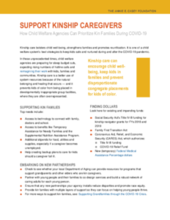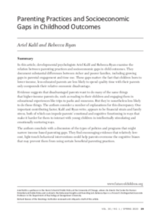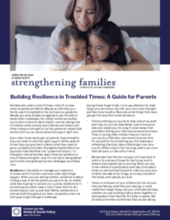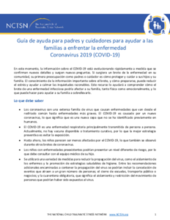This page contains documents and other resources related to children's care in the Americas. Browse resources by region, country, or category.
Displaying 1111 - 1120 of 3191
This Module explores how cognitive and social-emotional abilities operate in youth’s daily experience and personal lives and what we can do to help young people develop and strengthen these skills in order to thrive.
Esta infografia demuestra el proceso de integración de niños, niñas, y adolescentes (NNA) en familias de acogimiento temporal en Guatemala durante la pandemia de COVID-19.
This one-page factsheet from the Annie E. Casey Foundation makes the case for supporting kinship care during the COVID-19 pandemic and offers suggestions on how to support kin families, find funding to support these families, and embark on new partnerships.
In partnership with the University of Houston Graduate College of Social Work, the upEND movement works to create a society in which the forcible separation of children from their families is no longer an acceptable solution for families in need.
Esta guía se desarrolló para ayudar al equipo psicosocial a realizar un seguimiento virtual de los NNA y las familias durante la pandemia de COVID-19.
In this article, developmental psychologists Ariel Kalil and Rebecca Ryan examine the relation between parenting practices and socioeconomic gaps in child outcomes.
The Children's Trust Fund Alliance has compiled what they are hearing from parents in the U.S. and some of the creative and flexible responses that their members have been implementing into this document.
This brochure from the Center for the Study of Social Policy's Strengthening Families initiative shares tips for parents to draw on their own strengths and build a network of support to better help their children to thrive during challenging times, such as the COVID-19 pandemic.
Esta infografía explica los conceptos básicos de lo que es COVID-19 y lo que puede significar para los niveles de estrés en niños como en adultos que los cuidan.
Este recurso lo ayudará a comprender cómo el brote de una enfermedad infecciosa podría afectar a su familia, tanto física como emocionalmente, y lo que puede hacer para ayudar a su familia a sobrellevarlo.






